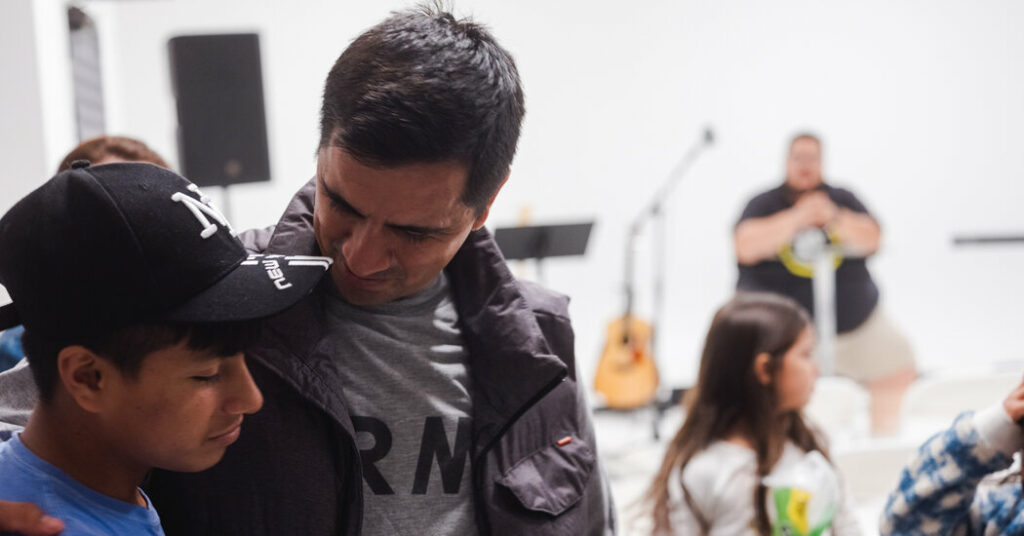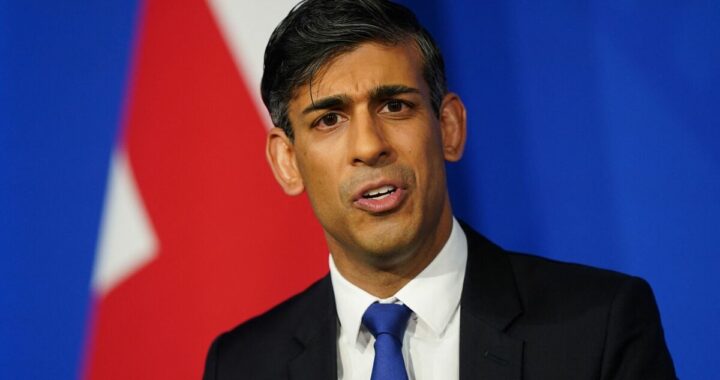Opinion | Our Immigration System: ‘A Waste of Talent’
5 min read
More from our inbox:

To the Editor:
“As Politicians Cry Crisis, Migrants Get a Toehold” (news article, July 15) points up the irrationality of the U.S. immigration system. As this article shows, migrants are eager to work, and they are filling significant gaps in fields such as construction and food delivery, but there are still great unmet needs for home health aides and nursing assistants.
The main reason for this disjunction lies in federal immigration law, which offers no dedicated visa slots for these occupations (as it does for professionals and even for seasonal agricultural and resort workers) because they are considered “unskilled.”
Instead, the law stipulates, applicants must demonstrate that they are “performing work for which qualified workers are not available in the United States” — clearly a daunting task for individual migrants.
As a result, many do end up working in fields like home health care but without documentation and are thus vulnerable to exploitation if not deportation. With appropriate reforms, our system would be capable of meeting both the country’s needs for essential workers and migrants’ needs for safe havens.
Sonya Michel
Silver Spring, Md.
The writer is professor emerita of history and women’s and gender studies at the University of Maryland, College Park.
To the Editor:
We have refugee doctors and nurses who are driving taxi cabs. What a waste of talent that is needed in so many areas of our country.
Why isn’t there a program to use their knowledge and skills by working with medical associations to qualify them, especially if they agree to work in parts of the country that have a shortage of doctors and nurses? It would be a win-win situation.
There are probably other professions where similar ideas would work.
David Albenda
New York
Cruelty at the Border
To the Editor:
Re “Officers Voice Concerns Over Aggressive Tactics at the Border in Texas” (news article, July 20):
In the past year, I have done immigration-related legal work in New York City with recently arrived asylum seekers from all over the world: Venezuela, China, Honduras, Guatemala, Ecuador and Ghana. Most entered the U.S. on foot through the southern border. Some spent weeks traversing the perilous Darién Gap — an unforgiving jungle — and all are fleeing from horribly violent and scary situations.
Texas’ barbed wire is not going to stop them.
I am struck by the message of the mayor of Eagle Pass, Rolando Salinas Jr., who, supportive of legal migration and orderly law enforcement, said, “What I am against is the use of tactics that hurt people.” I desperately hope we can all agree about this.
There should be no place for immigration enforcement tactics that deliberately and seriously injure people.
I was disturbed to read that Texas is hiding razor wire in dark water and deploying floating razor wire-wrapped “barrel traps.” These products of Gov. Greg Abbott’s xenophobia are cruel to a staggering degree.
Noa Gutow-Ellis
New York
The writer is a law school intern at the Kathryn O. Greenberg Immigration Justice Clinic at the Benjamin N. Cardozo School of Law.
Limiting the President’s Pardon Powers
To the Editor:
Re “U.S. Alleges Push at Trump’s Club to Erase Footage” (front page, July 28) and “Sudden Obstacle Delays Plea Deal for Biden’s Son” (front page, July 27):
With Donald Trump campaigning to return to the White House while under felony indictment, and with Hunter Biden’s legal saga unresolved, there should be bipartisan incentive in Congress for proposing a constitutional amendment limiting the president’s pardon power.
A proposed amendment should provide that the president’s “reprieves and pardons” power under Article II, Section 2, shall not apply to offenses, whether committed in office or out, by the president himself or herself; the vice president and cabinet-level officers; any person whose unlawful conduct was solicited by or intended to benefit any of these officials; or a close family member of any of these individuals.
Stephen A. Silver
San Francisco
The writer is a lawyer.
To the Editor:
Beyond asking “Where’s my Roy Cohn?” Donald Trump may now ask, “Where’s my Rose Mary Woods?”
David Schubert
Cranford, N.J.
Are A.I. Weapons Next?
To the Editor:
Re “Our Oppenheimer Moment: The Creation of A.I. Weapons,” by Alexander C. Karp (Opinion guest essay, July 30):
Mr. Karp argues that to protect our way of life, we must integrate artificial intelligence into weapons systems, citing our atomic might as precedent. However, nuclear weapons are sophisticated and difficult to produce. A.I. capabilities are software, leaving them vulnerable to theft, cyberhacking and data poisoning by adversaries.
The risk of proliferation beyond leading militaries was appreciated by the United States and the Soviet Union when banning bioweapons, and the same applies to A.I. It also carries an unacceptable risk of conflict escalation, illustrated in our recent film “Artificial Escalation.”
J. Robert Oppenheimer’s legacy offers a different lesson when it comes to advanced general-purpose A.I. systems. The nuclear arms race has haunted our world with annihilation for 78 years. It was luck that spared us. That race ebbed only as leaders came to understand that such a war would destroy humanity.
The same is true now. To survive, we must recognize that the reckless pursuit and weaponization of inscrutable, probably uncontrollable advanced A.I. is not a winnable one. It is a suicide race.
Anthony Aguirre
Santa Cruz, Calif.
The writer is the executive director and a co-founder of the Future of Life Institute.
U.S. Food Policy Causes Poor Food Choices
To the Editor:
Re “Vegans Make Smaller Mark on the Planet Than Others” (news article, July 22):
While I agree that people could help reduce greenhouse-gas emissions by eating plants only, I find it crucial to note that food policy is the main reason for poor food choices.
Food choices follow food policy, and U.S. food policy is focused on meat, dairy, fish and eggs. Our massive network of agriculture universities run “animal science” programs, providing billions of dollars’ worth of training, public relations, research, experimentation and sales for animal products.
Our government provides subsidies to the meat, dairy, fish and egg industries far beyond what fruits, vegetables and other plant foods receive. Federal and state agriculture officials are typically connected to the meat or dairy industry. The public pays the cost of animal factories’ contamination of water and soil, and of widespread illness linked to eating animals since humans are natural herbivores.
No wonder the meat, dairy, fish and egg industries have so much money for advertising, marketing and public relations, keeping humans deceived about their biological nature and what is good for them to eat.
David Cantor
Glenside, Pa.
The writer is founder and director of Responsible Policies for Animals.
Source: Read Full Article






